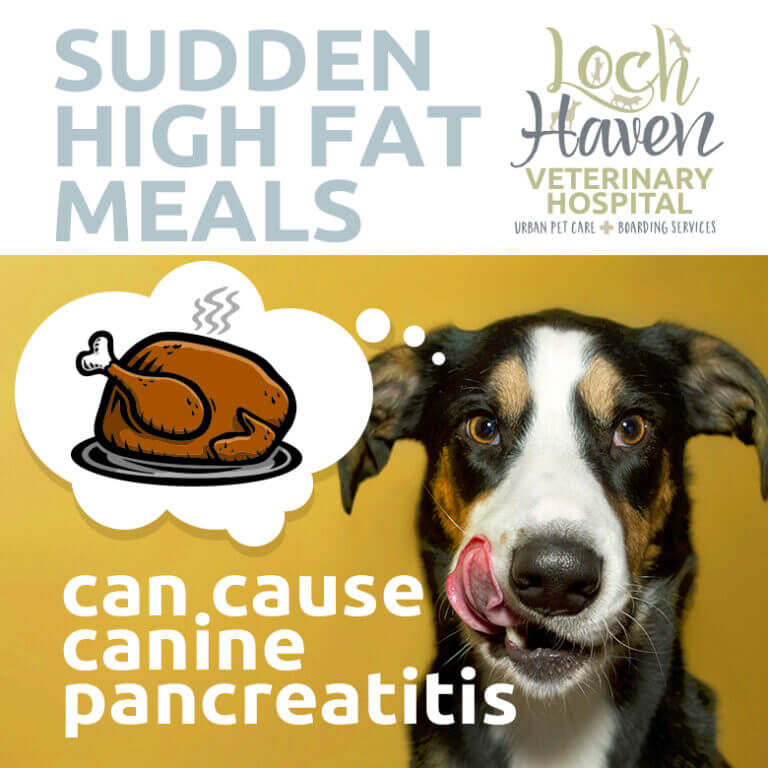
"With the holidays coming up, it is always temping to let our four legged family take part in our favorite holiday past time: Eating!"
Unfortunately, holiday classics are not always the best for our dogs and cats. Meals that contain a lot more fat than they are used to can lead to a problem called Pancreatitis.
Normally, the pancreas nestles cozily just under the stomach and along the small intestine. As a glandular organ, the pancreas is all about secretion and it has two main jobs: the first job is to secrete digestive enzymes to help us break down the nutrients we eat, the second job is to secrete insulin and glucagon (to regulate how we use the nutrients we eat). It’s the first job (the digestive enzyme part) that concerns us in pancreatitis.
In pancreatitis, inflammation disrupts the normal integrity of the pancreas. Digestive enzymes are normally stored safely as inactive forms within pancreatic granules so that they are harmless. In pancreatitis they are prematurely activated and released internally which can cause a severe inflammatory response. If the pancreas is affected so as to disrupt its ability to produce insulin, and diabetes can result; this can be either temporary or permanent.
Signs of pancreatitis include not eating, vomiting, diarrhea, and a painful abdomen. Diagnosis often includes blood work, radiographs, and possibly other imaging.
We often don’t find the cause of pancreatitis, but a sudden high fat meal is the classic cause of canine pancreatitis. The sudden stimulation to release enzymes to digest fat seems to be involved.
Treatment of pancreatitis usually involves hospitalization of the pet, with management of the nausea and discomfort they have, along with keeping them adequately hydrated.
Given these possible problems, we recommend giving our furry friends treats and foods made for them, and keeping our holiday recipes for the humans.
